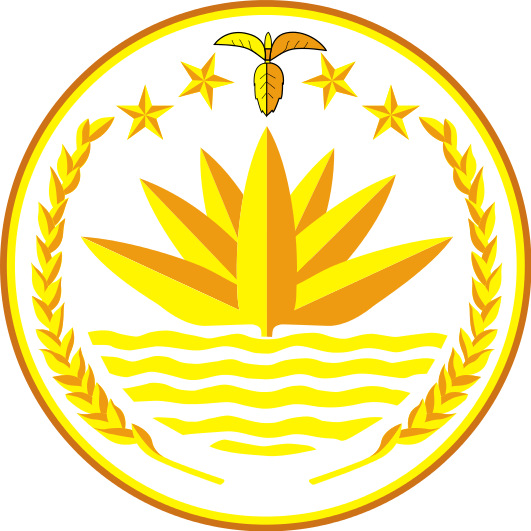Bangladesh Wikipedia page: "The Government of Bangladesh (Bengali: বাংলাদেশ সরকারBangladesh SôrkarGOB) is led by the Prime Minister, who selects all the remaining Ministers. The Prime Minister and the other most senior Ministers belong to the supreme decision-making committee, known as the Cabinet. The Government has three branches; the Executive branch, the Legislative branch and the Judicial branch."
Members:
Resources
Displaying 21 - 25 of 25Non-Agricultural Tenancy Act, 1949 (Act No. XXIII of 1949).
This Act provides for the tenancy of land that shall be used for purposes other than cultivation; and for the building of residential housing or factories or for erecting shrines and temples and digging tanks. Nevertheless, the tenant or the sub-tenant is entitled to fell trees planted on that land, dispose of harvested fruits and flowers produced by the trees, and, even, to sow any plant or flower.
Development Act, 1935 (Bengal Act No. XVI of 1935).
This Act deals with improving the agricultural production by means of interventions on irrigation works or the restoration of the water flow in rivers turned dry and the application of a levy on the profits arising as direct consequence of those improvements.
Bangladesh Land Holding Limitation Order,1972. (P.O No. 98 of 1972).
The Order deals with the limitation of land property by terms of its size that must not exceed 100 bights if the land is owned by family or individuals. The amount of exceeding land must return to the Government. An exemption is liable to be apllied in case of land owned by religious organization, farmers’ cooperatives or if tea, rubber, cocoa or coffee are being cultivated there; or when its use is being taken in account for industrial projects, when considered beneficial to the public interest.
Transfer of Property Act, 1882 (Act No. IV of 1882).
The Act deals with the transfer of property from an individual to another by means of sale, mortgage (as per point a), lease, exchange (i.e exchanging the property of land with crops) or donation. In this last case, donation must be accepted by the person in the course of the donor’s lifetime. If the recipient dies before having accepted the donation, this shall be considered null.
Tanks Improvement Act, 1939 (Bengal Act No. XV of 1939).
In order to improve the condition of reservoirs of water the Collector, as defined in section 2, may serve a notice on the person having control over a tank which has fallen into disrepair or disuse requiring such person to carry out improvements of the tank as the Collector considers necessary (sect. 3). If improvements are not carried out to the satisfaction of the Collector he may declare the tank to be a derelict tank.


